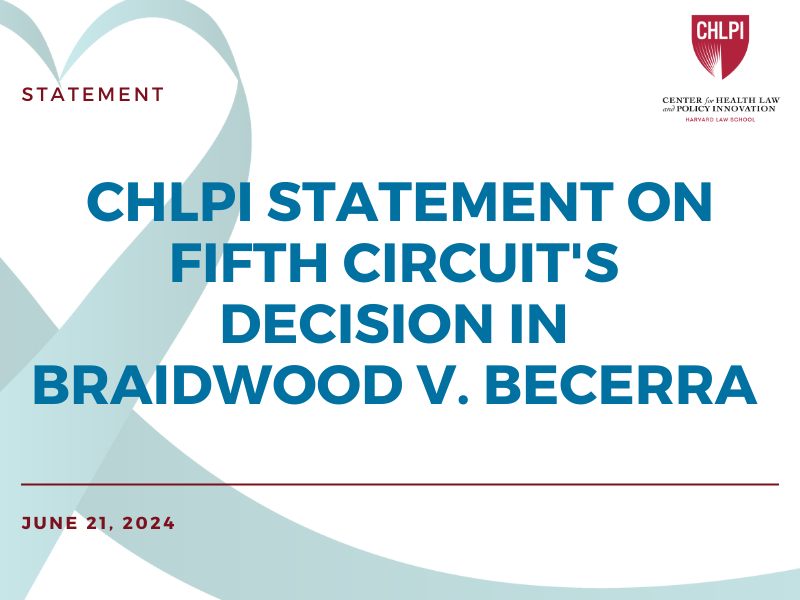
by Adaobi Ezeokoli | Jun 21, 2024 | Health Law & Policy, News
June 21, 2024 The Center for Health Law & Policy Innovation (CHLPI) of Harvard Law School today released the following statement from Carmel Shachar, Faculty Director of CHLPI’s Health Law and Policy Clinic, in response to today’s decision from the Fifth Circuit...
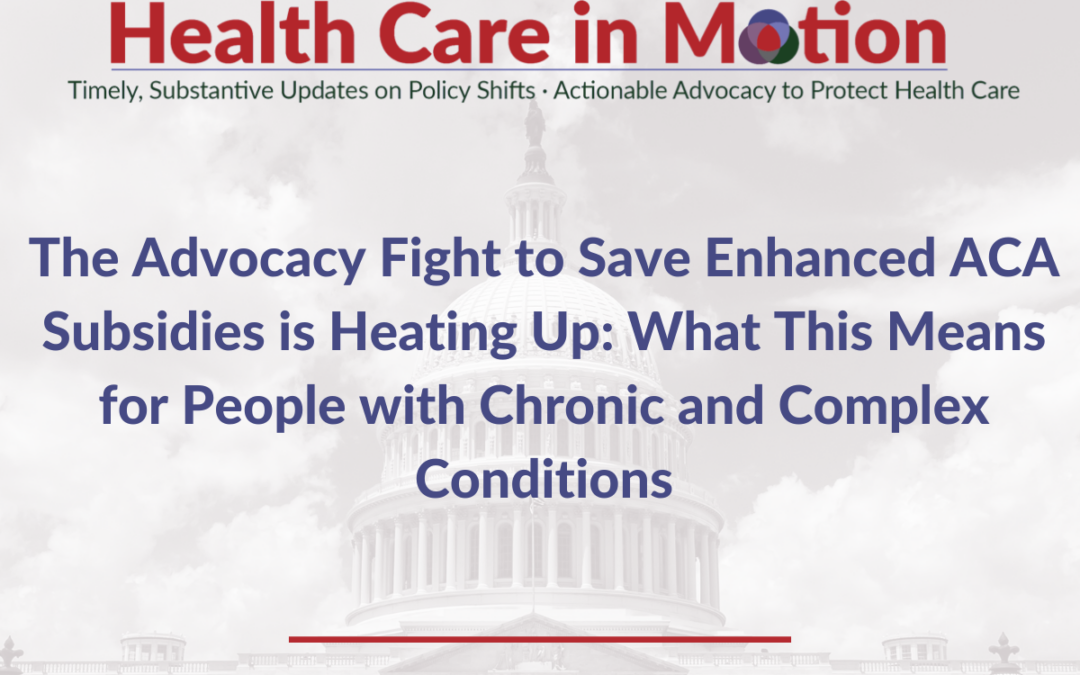
by Adaobi Ezeokoli | May 22, 2024 | Health Law & Policy, Commentary
At the end of the last open enrollment period, Affordable Care Act (ACA) marketplace sign-ups were at an all-time high, with over 21 million people choosing a plan. This exceeded last year’s sign-ups (which were also a record high) by 5 million. These unprecedented...
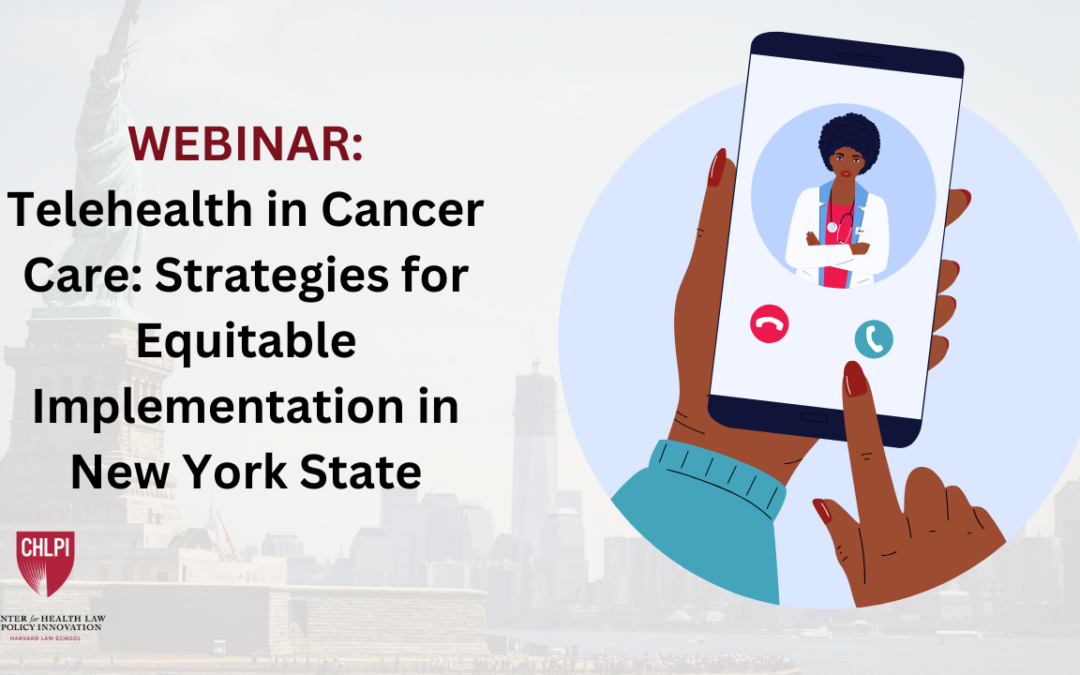
by Adaobi Ezeokoli | May 21, 2024 | Health Law & Policy, Commentary
The COVID-19 pandemic widened the digital divide in telehealth access in the United States. The future of telehealth remains uncertain, prompting questions about the next steps and the path forward. Over the course of several months, the Center for Health Law &...
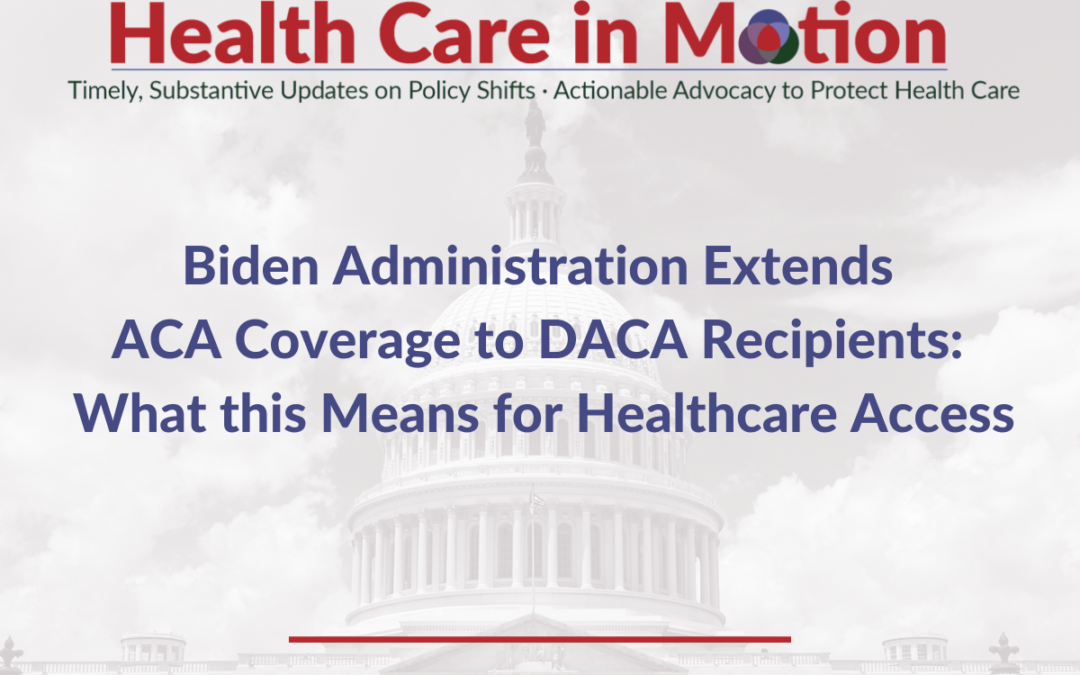
by Adaobi Ezeokoli | May 8, 2024 | Health Law & Policy, Commentary
After a lengthy advocacy battle, the Biden Administration released a final rule last week extending eligibility for Affordable Care Act (ACA) coverage to people enrolled in the Deferred Action for Childhood Arrivals (DACA) program, also known as DACA recipients. Read...
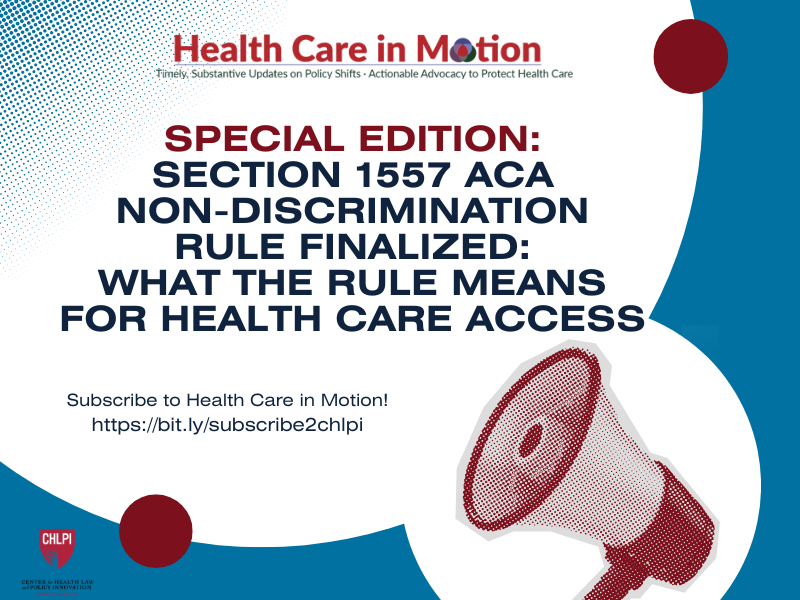
by Adaobi Ezeokoli | May 2, 2024 | Health Law & Policy, Commentary
At long last, the Biden Administration has finalized its rule clarifying the protections laid out in Section 1557 of the Affordable Care Act (ACA), the part of the law that forbids federally funded health care activities and programs from discriminating on the basis...
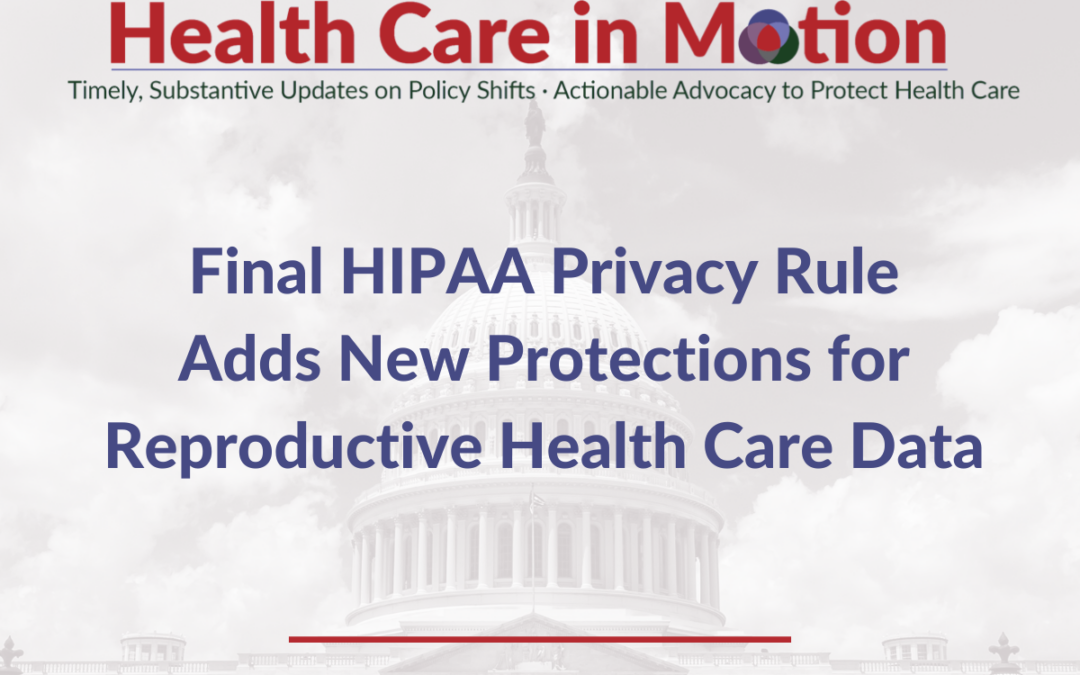
by Adaobi Ezeokoli | Apr 25, 2024 | Health Law & Policy, News
On April 22, 2024, the Administration released a final rule strengthening privacy and confidentiality protections for reproductive health data under the federal Health Insurance Portability and Accountability Act (HIPAA). This rule is one of the many actions the...
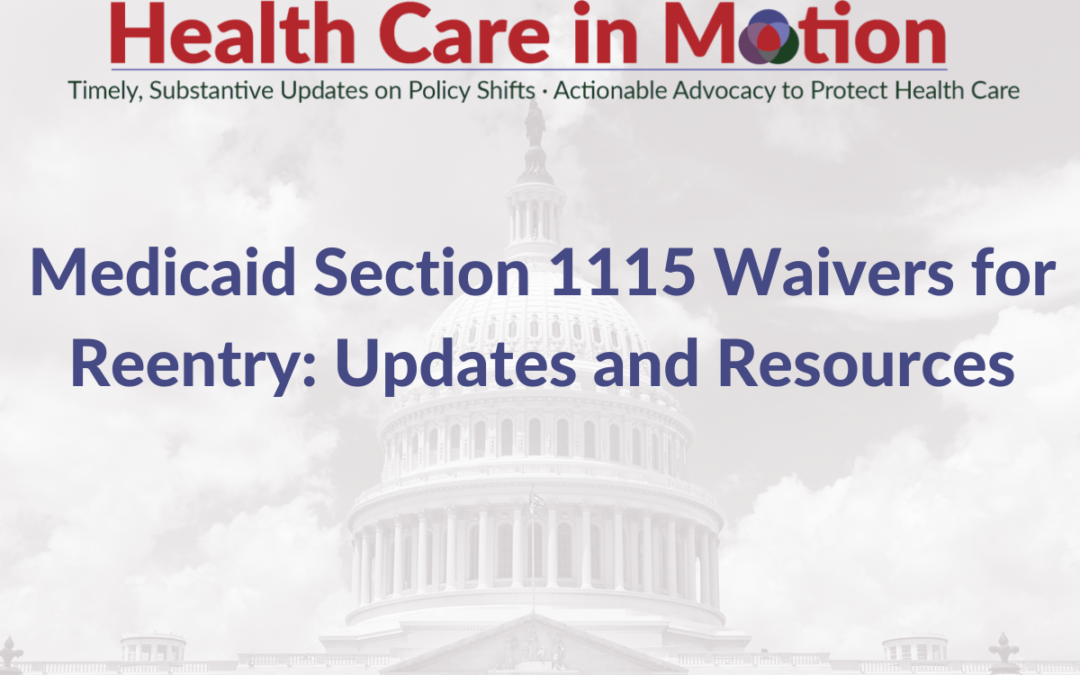
by Adaobi Ezeokoli | Apr 17, 2024 | Health Law & Policy, Commentary
A person’s transition from incarceration back to the community is fraught with competing, complex social and behavioral health needs, as well as staggering rates of overdose and other adverse health events. This period can be especially challenging for people with HIV...
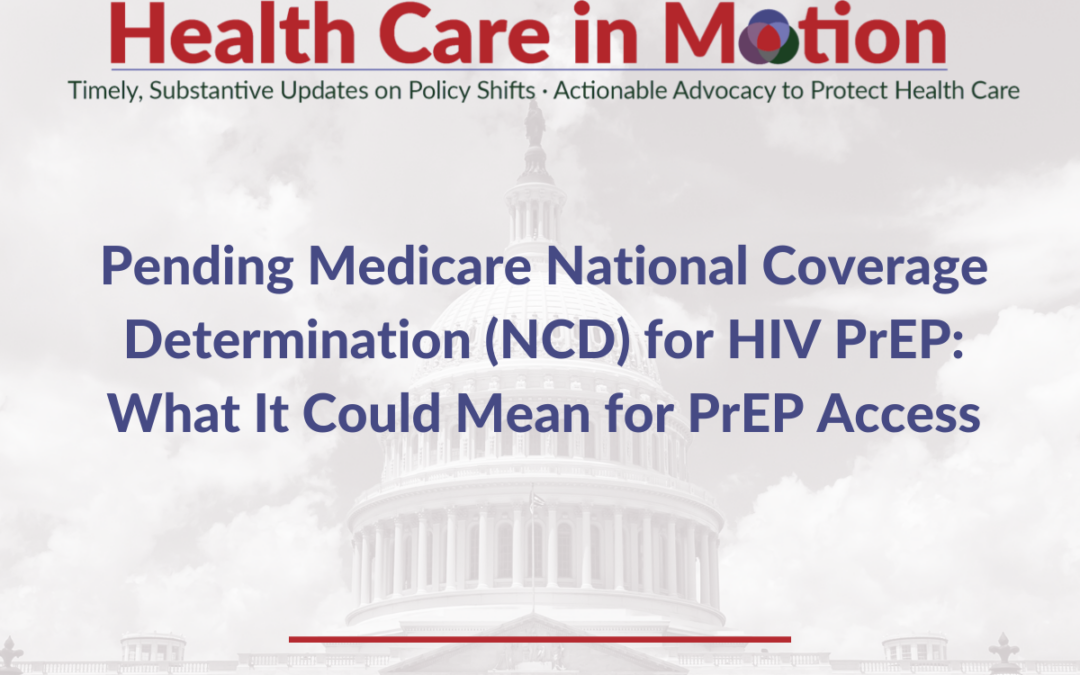
by Adaobi Ezeokoli | Feb 21, 2024 | Health Law & Policy, Commentary
Under federal law, the Centers for Medicare and Medicaid Services (CMS), the agency that oversees the Medicare program, can ensure coverage of preventive services under Medicare Part A and Part B through a process called a National Coverage Determination (NCD). CMS...

by Adaobi Ezeokoli | Feb 20, 2024 | Health Law & Policy, News
By Jeanine Santucci and Mike Davis, originally published in USA TODAY on February 20, 2024 Marijuana remains in an odd legal limbo in the United States, and there’s one organization at the center of it: the Drug Enforcement Administration. The DEA has for...

by Adaobi Ezeokoli | Feb 12, 2024 | Health Law & Policy, Commentary, Students Speaking On...
By Jessica Bushman, HLPC Clinic Student, Fall 2023 My semester in Harvard’s Health Law & Policy Clinic was unparalleled. Alongside the Hepatitis C Advocacy Project team, I worked to develop a set of strategies and tools advocates can use to promote more widespread...
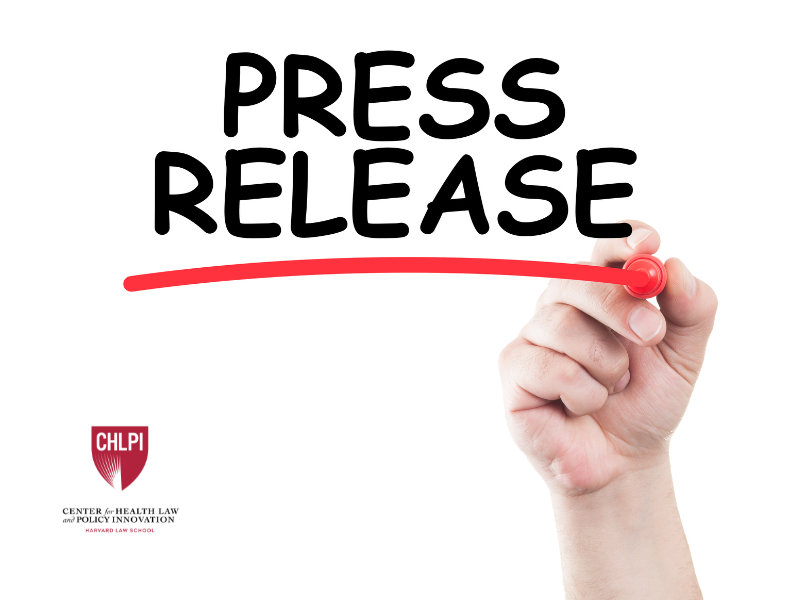
by Adaobi Ezeokoli | Feb 8, 2024 | Health Law & Policy, News
FOR IMMEDIATE RELEASE WASHINGTON, D.C. (February 8, 2024) – The Center for Health Law and Policy Innovation of Harvard Law School (CHLPI) and the National Viral Hepatitis Roundtable (NVHR) applaud the recent joint letter from the U.S....
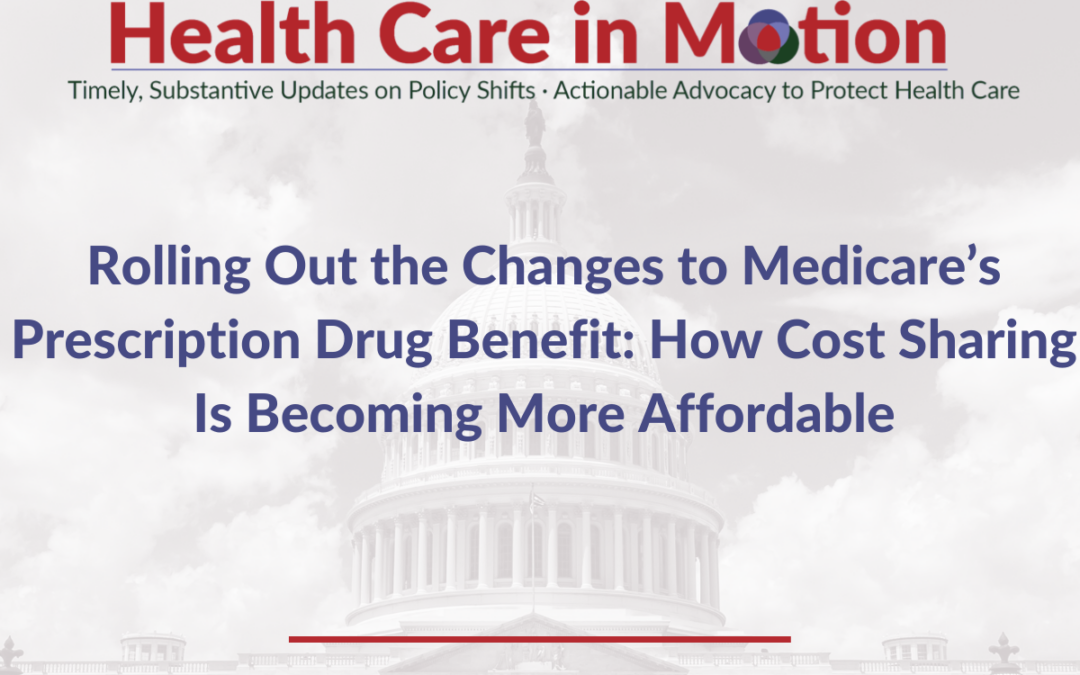
by Adaobi Ezeokoli | Feb 7, 2024 | Health Law & Policy, Commentary
The Inflation Reduction Act (IRA), a sweeping federal law enacted in August 2022, included many provisions aimed at making prescription drugs more affordable under Medicare Part D, the Medicare program that provides prescription drug coverage. Two major changes to...












